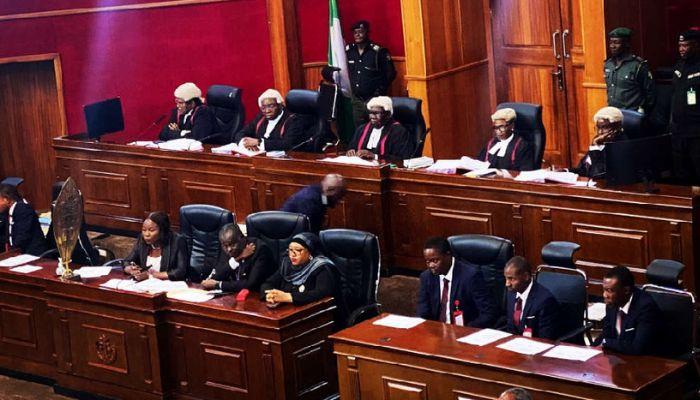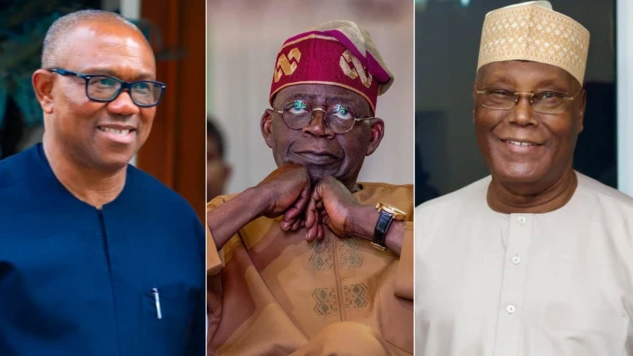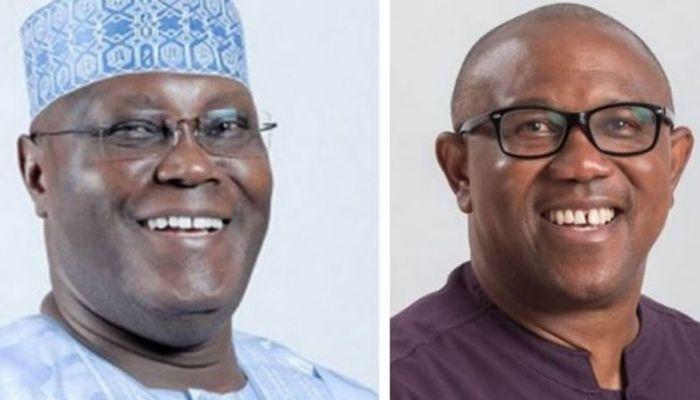In a stunning revelation during the ongoing Presidential Election Petitions Court, INEC admitted that 25% votes in FCT is sacrosanct.
During the exchange between the witness representing the Peoples Democratic Party (PDP) and its presidential candidate, Atiku Abubakar and the INEC, both parties emphatically admitted that President Bola Tinubu should not be declared the president due to his failure to secure 25 percent of the votes in the Federal Capital Territory (FCT).
COURT UPDATE 05/06/23
INEC: You will agree with me that Atiku scored 15% in FCT
PDP’s Witness: Yes
INEC: So that means he cannot be made the president since he did not score 25% in FCT
Witness: Even Tinubu did not score 25% and you made him president.
INEC: That is not my question. Atiku scored 15% in FCT so why did you write in your testimony that he should be declared president.
Witness: Even Tinubu did not get 25% in FCT, if they can declare him then they can also declare Atiku as president
Undeniably, it is enshrined in our constitution that a candidate must garner 25 percent of the votes in the FCT to be rightfully declared the winner. However, the results announced by the Independent National Electoral Commission (INEC) painted a contrasting picture. While Peter Obi of the Labour Party secured more than 25 percent of the votes, Tinubu, the All Progressives Congress (APC) candidate, fell short with a mere 18.98 percent. In comparison, Atiku Abubakar garnered a respectable number of votes.
It is only logical, then, that if President Tinubu failed to meet this constitutional requirement, Atiku should be sworn in as the President, given that he allegedly secured the majority of lawful votes cast in the entire election. This revelation underscores the importance of upholding the constitutional principles that guide our electoral processes.
During cross-examination by Abdullahi Aliyu, the counsel for INEC, one of the witnesses, Mohammed Madaki, chairman of PDP, FCT, affirmed that the requirement for 25 percent of the votes in the FCT was not a personal opinion but was based on the law. Madaki also expressed his concern about the lack of updated polling unit results on the Integrated Results Electronic Viewing Platform (IREV), highlighting the need for transparency and accurate information dissemination.
Abraham David, a businessperson and PDP agent residing in Abuja, echoed Madaki’s sentiment during his cross-examination by Aliyu, maintaining that neither Atiku nor Tinubu reached the 25 percent threshold and should not be returned. However, he argued that Atiku, despite not meeting the requirement, should still be returned since Tinubu was declared the president despite falling short as well.
These testimonies bring to light the discrepancies and irregularities that marred the electoral process. David’s revelation that unlawful votes were collated by INEC, along with reports from the party’s polling agents, further underscores the need for a thorough investigation into the conduct of the election.
Furthermore, Ibrahim Hamza, PDP’s collation agent for Nasarawa state, testified under cross-examination by the respondents, alleging that he signed the result under duress. He expressed dissatisfaction with the results and highlighted the non-compliance with due process, intimidation, and the absence of result uploads after the election. These revelations serve as a call to action, urging authorities to address these concerns and rectify any breaches of electoral integrity.
It is essential for our democratic process to function with the utmost transparency and respect for constitutional provisions. The court must carefully consider the evidence presented and ensure that justice prevails. The fate of our nation rests on fair and impartial proceedings, guaranteeing that the will of the people is accurately reflected.
As we await further developments, let us continue to uphold the values of democracy and demand accountability from our electoral institutions. Together, we can ensure that our electoral processes are fair, just, and representative of the will of the people.




